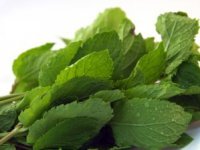The government’s medicine watchdog (MHRA) has recently ensured that all herbal medicines sold in the UK are registered under the Traditional Herbal Registration Scheme. The new regulation will mean herbal medicines can be taken seriously by consumers, doctors, nurses and pharmacists because they will contain high quality ingredients, have a good safety profile and also clear and concise information about their suitability for you to treat certain minor health conditions. There are various herbal alternatives for those suffering from symptoms such as low mood, common cold, mild anxiety, upset stomach and migraine headaches – and it seems that with the new regulations, both GPs and patients will be more confident recommending and using these remedies.
So what is the new herbal medicine regulation and what does it mean for patients in the UK?
Joining us to discuss this further is Dr Hilary Jones, expert TV medic.

